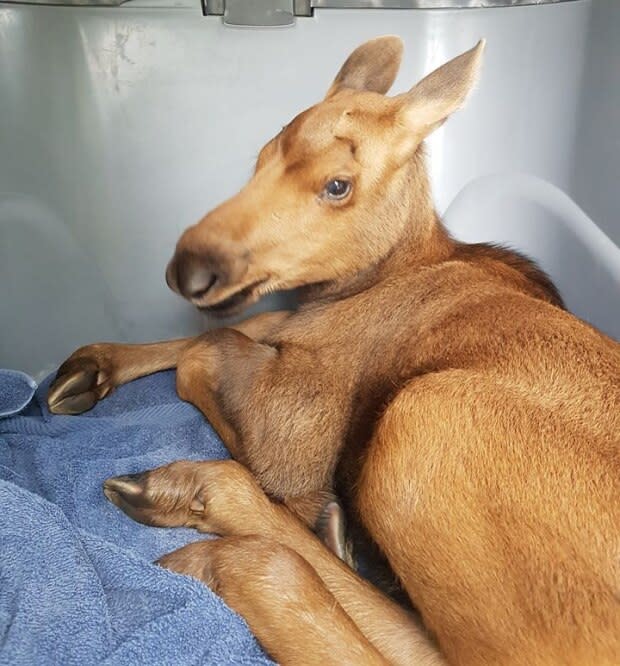Do not take in wildlife as pets, Sask. rescue organization warns after increase in calls
People are taking in wildlife more often than usual this summer and a Saskatchewan rescue organization says it is causing more harm than good.
Bonnie Dell, president of the Wildlife Rehabilitation Society of Saskatchewan (WROS), said more people are seeing wildlife in urban areas than usual this year. This brings problems, but they are caused by humans.
"We've seen an alarming increase in the amount of people who find wildlife and feel entitled to keep it and raise it themselves," Dell said.
She said this is the most of this type of call the organization has ever received.
"That's just to our hotline. We're hearing it from rehabs in the province as well who have been seeing it with their own calls."
The growing trend could be caused by COVID-19 or social media, Dell said.
"There's always cute stories of animals that people have found and kept and it's a so-called success," she said. "And that's not always the case in reality."
Dell said people are most likely well-intentioned but don't realize what they're getting into and are misinformed.
"When you find a small, potentially orphaned raccoon that's only a couple or three weeks old, they're really cute, easy to handle," Dell said. "But they forget that they're going to grow up and once they start maturing they become very destructive and very aggressive."
Dell said the rehabilitation society has seen people keeping animals this summer that they haven't tried to keep in the past.
"One week included people keeping a badger, some raccoons, a turkey vulture and a moose calf," she said.
Each animal comes with its own challenges and dangers, she said. Badgers, for example, are extremely aggressive.
"They had found it as a very small baby. The eyes weren't even open yet right beside its mother who had been hit on the road," Dell said. "Entirely well-meaning, these people couldn't have been nicer, they took the badger home and looked after it for I think close to three months."
The animal was starting to mature and anything out of the ordinary could trigger it's natural aggression, she said.
The same week, the rehabilitation society was asked by a conservation officer to retrieve a moose calf. Dell said people found the calf next to its dead mother on the road and thought they were being kind.
"It turned out that people were keeping it in a room in their house and had it for at least a couple of weeks," Dell said. "But a moose calf — as I think most people are aware — they really don't thrive in a spare bedroom."
The calf was malnourished and needed help. One volunteer picked it up and took it to the Healing Haven Wildlife Rehabilitation Facility. Dell said they hope it will be okay.

Dell said volunteers got a call the same week about a turkey vulture that had been dumped at the side of a road.
"It had a badly broken wing right at the elbow. So you can imagine how painful that would have been," Dell said. "But the x-rays showed that the break in its wing was well over a week old and therefore the bones had fused and there was no choice but to euthanize the turkey vulture."
Dell said people must have been trying to take care of it but not aware of the pain it was in.
"If they had just phoned us the minute they found that vulture, he would be just fine today," Dell said.
Dell said anyone finding injured or abandoned wildlife should phone the rehabilitation centre. Even people who have been holding onto an animal are encouraged to call, she said.
"We're not going to judge you or get mad at you. We are only interested in the well-being of that animal," she said. "We just want to get that animal to a wildlife rehabilitator and give it its best chance."

 Yahoo Movies
Yahoo Movies 